Maternal Gift Economy: Breaking Through -
Ongoing Salons
Every two weeks
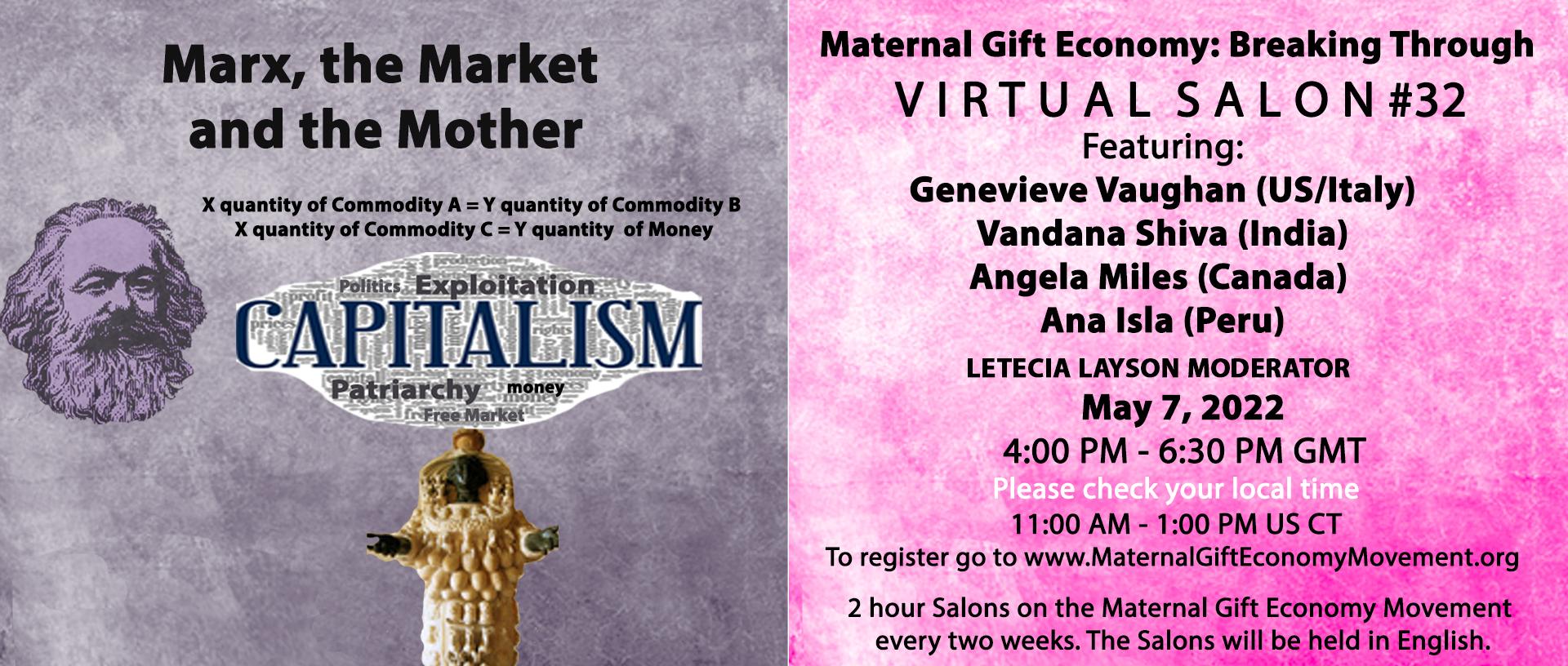
Maternal Gift Economy Movement - Salon #32 - Marx, the Market and the Mother
May 7, 2022
Featuring Genevieve Vaughan and guests: Angela Miles, Ana Isla and Vandana Shiva
Moderated by Letecia Layson
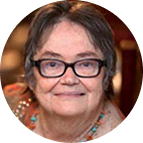
Genevieve Vaughan
Marx opens his famous treatise on the economy Das Kapital, with the analysis of the interaction of the exchange of commodities and money. He reveals how this simple interaction that we do every day, is in fact the center point of a social fabric that determines our lives in many ways. It both connects and divides us, making space for and giving rise to distorted (patriarchal) power relations, poverty of the many as well as extreme wealth for the few, while at the same time emphasizing 'equality'.
The importance of this analysis of such a commonplace fact, has taken some time to dawn even upon Marxist scholars but took a leap forward with the recognition of the work of Alfred Sohn-Rethel, who showed that as our ubiquitous 'social nexus', commodity exchange for money is an abstraction in reality and that it gives rise to abstract thinking. For example the Kantian categories are not apriori but come from the practice of 'real abstraction' in exchange. This possibility has been a focus of much discussion recently by philosophers like Zizeck, Heinrich, Postone, Lotz and many others as well as the classicist Richard Seaford who sees the coinage of money as the basis of Ancient Greek philosophy.
In this talk I will show that there is another, prior social nexus that is much more widespread than commodity exchange, the nexus of the maternal gift, which has been hidden and forced into the background by the market, but nevertheless persists unacknowledged and un named as the source of positive human interaction, of communication, of language and even of profit itself.
Thinking about the market always begins from exchange and does not see the deeper source as the unilateral gift economy and the human relations constructed within it. This is in part due to the invisible parasitic relation of the market upon gifting, a relation that is facilitated by (hiding it) and by misogyny, patriarchy and the penalization of childhood and mothering. Bringing the social nexus of the maternal gift economy into the light allows us to see that commodity exchange is only one variation upon it, a conditional gift, quid pro quo- not the logic or the source of our humanity.
In fact the cause of Earth's problems now is this nexus of exchange that we must somehow diminish and even eliminate in order to give the gift of a solution to the terrible problems that patriarchal capitalism is causing for all on Mother Earth.
Bio
Genevieve Vaughan (b.1939) is an independent researcher who lives part time in Italy and part in Texas. She created the multicultural all-woman activist Foundation for a Compassionate Society (1987-2005) and the Temple of Sekhmet in the Nevada desert (1992 – ongoing) and she co-created the network: International Feminists for a Gift Economy (2001 – ongoing). Her books are For-Giving, a Feminist Criticism of Exchange (1997), Homo Donans (2006) and The Gift in the Heart of Language: the Maternal Source of Meaning (2015). She has edited Il Dono/The Gift (2004), Women and the Gift Economy (2007) and The Maternal Roots of the Gift Economy (2019). A volume of the Canadian Women’s Studies Journal dedicated to the maternal gift economy has just appeared (2020)
More information @ www.gift-economy.com.
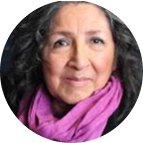
Ana Isla
Presentation topic: Marx, Ecology, and Ecofeminism
The point of departure of traditional Marxism theory is the contradiction between capitalist productive forces and production relations, The agent of the socialist revolution was the working class. The site of transformation is politics and the state and the process of production and exchange. Marx did not theorize the relationship between social and material dimensions of production conditions.
The point of departure for an “Ecological Marxism” theory is the contradiction between capitalist production relations (and productive forces) and the conditions of capitalist production.” The critical mass are the “new social movements” such as Socialist Ecofeminism (SE).
SE has long considered issues of unpaid and community work, women’s and nature’s work as foundational to economic growth. They introduce a historically grounded socio-economic element to the woman/ecology analysis, attending to environmental issues which particularly affect all economically disadvantaged women but particularly women from Third World Countries, women of colour, and the working poor.
Bio
Ana Isla is a Professor Emerita from the Department of Sociology and the Centre for Women and Gender Studies, Brock University, Canada.
Author of The "Greening" of Costa Rica: Women, Peasant, Indigenous People and the Remaking of Nature, (Toronto University Press, 2015); and the editor of Climate Chaos: Ecofeminism and the Land Question (Inanna Publications & Education Inc., Toronto, 2019). She authored several articles on extractivism in English, Spanish, and Portuguez.
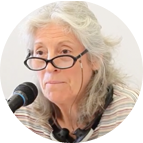
Angela Miles
Angela Miles is a founding member of Toronto Women for a Just and Healthy Planet, Antigonish Women's Association, Feminist Network for a Gift Economy and a member of the editorial board of Canadian Woman Studies. She is Professor Emerita at the Ontario Institute for Studies in Education of the University of Toronto where she co-founded the International Women’s Human Rights Education Summer Institute. Her publications include, Integrative Feminisms: Building Global Visions and the edited collection Women in a Globalizing World: Transforming Equality, Development, Diversity and Peace.
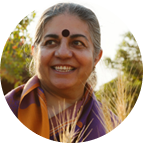
Vandana Shiva
Dr. Vandana Shiva is trained as a Physicist and did her Ph.D. on the subject “Hidden Variables and Non-locality in Quantum Theory” from the University of Western Ontario in Canada. She later shifted to inter-disciplinary research in science, technology and environmental policy, which she carried out at the Indian Institute of Science and the Indian Institute of Management in Bangalore. In 1982, she founded an independent institute, the Research Foundation for Science, Technology and Ecology in Dehra Dun dedicated to high quality and independent research to address the most significant ecological and social issues of our times, in close partnership with local communities and social movements. In 1991, she founded Navdanya, a national movement to protect the diversity and integrity of living resources, especially native seed, the promotion of organic farming and fair trade. In 2004 she started Bija Vidyapeeth, an international college for sustainable living in Doon Valley in collaboration with Schumacher College, U.K.Dr. Shiva combines the sharp intellectual enquiry with courageous activism..Time Magazine identified Dr. Shiva as an environmental “hero” in 2003 and Asia Week has called her one of the five most powerful communicators of Asia.Forbes magazine in November 2010 has identified Dr. Vandana Shiva as one of the top Seven most Powerful Women on the Globe. Dr. Shiva has received honorary Doctorates from University of Paris, University of Western Ontario, University of Oslo and Connecticut College, University of Guelph.Among her many awards are the Alternative Nobel Prize (Right Livelihood Award, 1993), Order of the Golden Ark, Global 500 Award of UN and Earth Day International Award. Lennon ONO grant for peace award by Yoko Ono in 2009, Sydney Peace Prize in 2010, Doshi Bridgebuilder Award, Calgary Peace Prize and Thomas Merton Award in the year 2011,the Fukuoka Award and The Prism of Reason Award in 2012, the Grifone d’Argento prize 2016 and The MIDORI Prize for Biodiversity 2016, Veerangana Award 2018, The Sanctuary Wildlife Award 2018 and International Environment Summit & Award 2018. More information @ navdanya.org.
